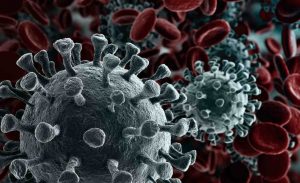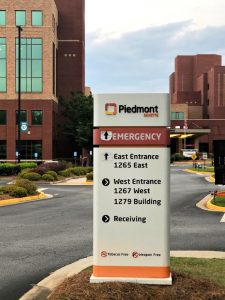
Piedmont Healthcare — which includes Piedmont Fayette Hospital in Fayetteville — is following screening guidelines recommended by the Centers for Disease Control (CDC) when evaluating patients who present with fever and symptoms of lower respiratory illness and have a history of travel to the affected areas, according to Michael Boylan, senior communications specialist for Piedmont Fayette and Piedmont Henry.
The elevated screening is being conducted at all of our hospitals or ambulatory clinic settings, including emergency rooms, urgent care and physician practices, Boylan said.
The screening guidelines include presentation of symptoms (for example, fever, cough and shortness of breath) in combination with either travel to China, Italy, Iran, Japan and South Korea and/or close contact with a person confirmed to have the virus.
If the contact is with a person who is under investigation for the virus, the patient presenting must also have a fever to be considered a positive screen.
In addition, Piedmont also is considering testing patients who present with fever with severe acute lower respiratory illness, such as pneumonia, that requires hospitalization and who do not have an alternative explanatory diagnosis for their illness (such as travel history).
If a patient’s screen is positive, appropriate isolation procedures are implemented and the clinical staff are immediately notifying their Infection Preventionist and the Georgia Department of Public Health (DPH).
“When necessary, we also are consulting with DPH when patients arrive who have traveled outside the United States and have the aforementioned respiratory symptoms,” Boylan said.
“Piedmont Fayette is following all of our regular infection prevention protocols, as well as implementing and keeping up to date with the CDC guidelines for COVID19,” said Hannah Drake, an Infection Preventionist at Piedmont Fayette. “We’re also communicating with our visitors the importance of following preventive measures such as covering your mouth when you cough or sneeze, washing hands with soap and water, often, and for at least 20 seconds, and routinely cleaning frequently touched surfaces and objects, particularly cell phones.”
For the last month, Piedmont has been educating its clinical staff – and in particular those who are in the position to have first contact with patients – on the screening guidelines and reinforcing the use of appropriate isolation procedures. In addition, the screening questionnaire has been added to Piedmont’s electronic medical record, Epic.











Leave a Comment
You must be logged in to post a comment.